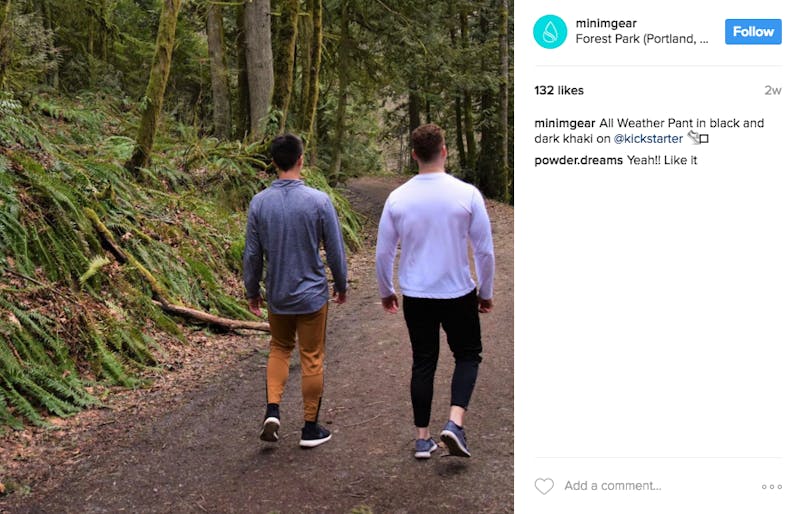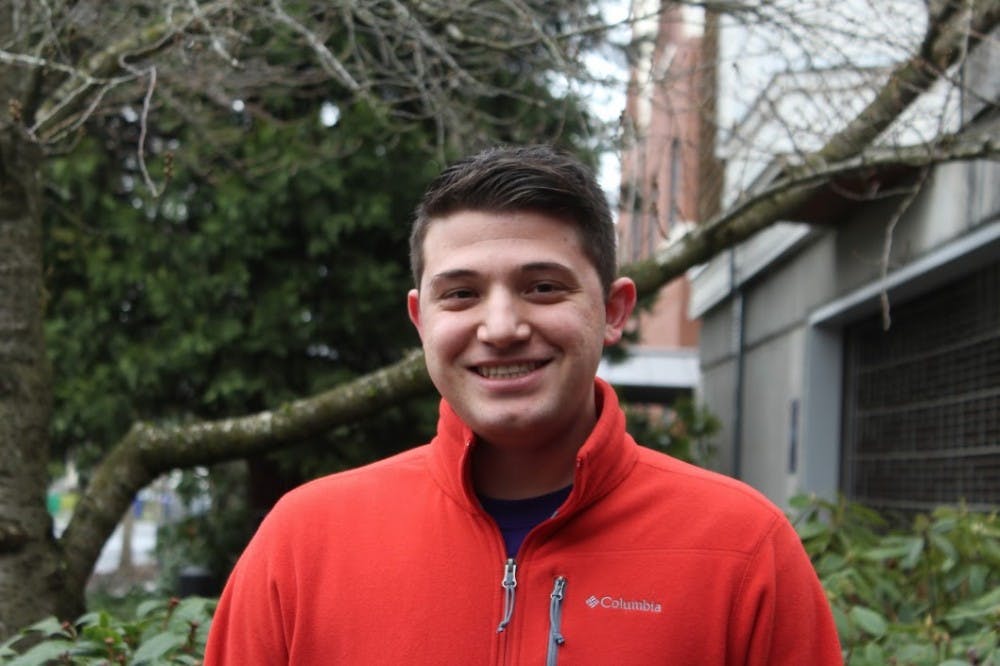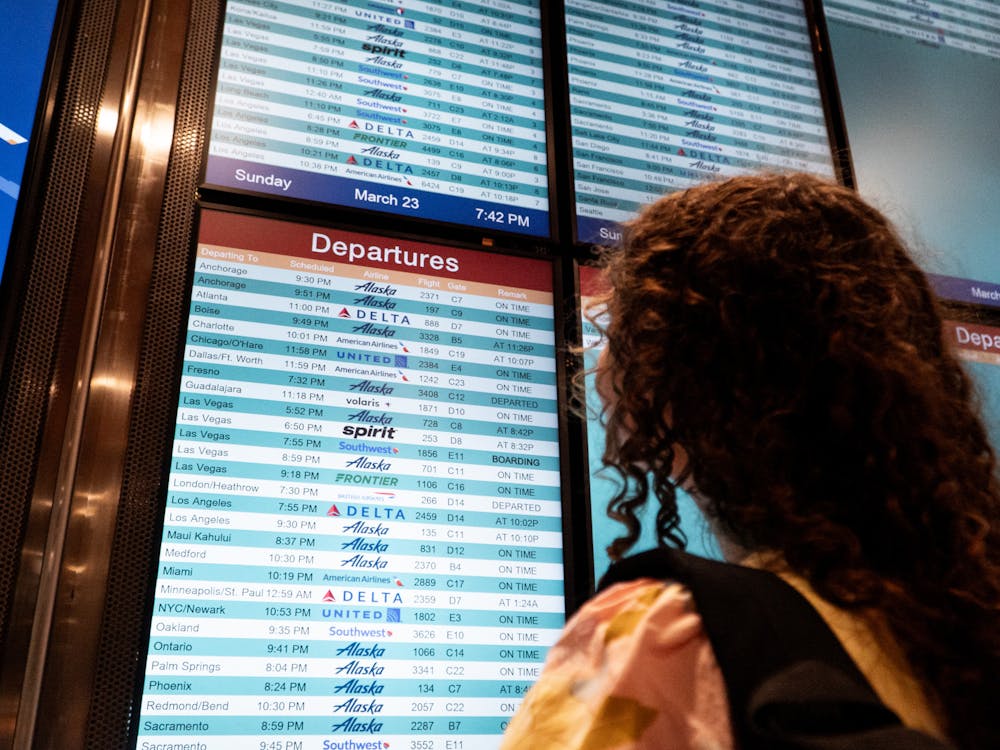When the end of the semester comes around, most students have final exams and planning for summer vacation in mind. But some are working to score an extra chunk of change before the end of the year.
Participants in the $100K Competition are preparing their business plans for the chance to win funding to launch their venture.
The $100K Competition was given its name after an investor donated $100,000 to kickstart the annual venture challenge — not because students actually win $100,000. But it allows students, regardless of their major, to present their business ideas, either nonprofit, for-profit or inventions.
The cash prize for first place is $1,250 and an opportunity to apply for investment from UP for up to $10,000 cash or in support systems. Judges critique each part of students’ projects and show them what is successful and should be improved.
“It makes ideas happen,” said Peter Rachor, head of the School of Business’ entrepreneurship program. “It gives students what is necessary to take their ideas further.”
Now in its 12th year, there are about 70 students competing in the challenge, either as part of 45 teams or individually.

Senior finance major James Ikeguchi is preparing to participate in this year’s competition. Last year, he participated in the E-Scholars program, which helps students start the first phase of their projects and develop them further. This year will be his second time in the competition.
His project is a radio app that live-streams college radio stations to make them more accessible to students. He explained that the app has a social element too — you can see what your friends listen to.
“I hope to be able to negotiate a favorable investment deal with the University,” Ikeguchi said. “I can reinvest money into expansion, a marketing plan and pay my app developer more.”
Senior mechanical engineering major Thomas Manfredonia is preparing a project for the challenge for the second time, too.
He developed the “Nuk” as a solution to a problem he experienced as a freshman living in the dorms: Not having anywhere to put his cell phone near his lofted bed. It is an individualized phone caddy made of a local birch plywood. His project has developed over the years with the help of E-Scholars.
“The process (of preparing for the $100K Competition) has helped me and still continues to help me develop my business model and strengthen that area of my project,” Manfredonia said.
If he wins this year, Manfredonia hopes to seek out further funding possibilities and eventually sell the Nuk in Bed Bath & Beyond stores.
Both Ikeguchi and Manfredonia agree that participating in the $100K helped them better develop their projects and business plans, and they look forward to the results of this year’s challenge.
Michael Williamson, a junior finance major and E-Scholar, won the challenge last year in his second time competing.
As a snowboarder, he saw a need for warm, waterproof clothes that aren’t bulky and still look good.

He created “Minim Gear” in order to “buy less, own better,” he says. “I was looking to flip what is defined as clothing upside down by pushing the boundaries of clothing and technology in a sustainable way.”
His current garments are a waterproof hoodie and all-weather pants.
His company is self-run, but he has UP students model the clothing, a partner to help develop new, eco-friendly prototypes, and a patternmaker to bring his designs to life. He now has a program which plants a tree for every garment sold to help offset the carbon pollution of production.
After winning, Williamson put the cash prize into the inventory. He also pursued an investment but eventually opted out to try and bootstrap the money himself. He hopes to find investments later down the road.
“The $100K helped me to think critically about where I want business and to get stuff done. It gave me a way to connect to the community and tap into the network of professors, advisors and students,” he says. “It is such an amazing thing, such few schools have such an awesome community with entrepreneurship and making things happen.”
This year’s event takes place on April 29 in Shiley 301. The first round lasts from 9 a.m. to 12 p.m., and the finals round is from 1 to 3 p.m. The round for inventions is also from 1 to 3 p.m. It is open to faculty, staff, students and the public to watch.









